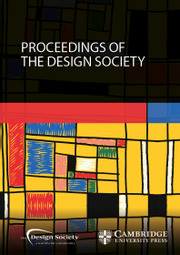Article contents
PROJECT-BASED LEARNING IN ENGINEERING EDUCATION – DEVELOPING DIGITAL TWINS IN A CASE STUDY
Published online by Cambridge University Press: 19 June 2023
Abstract
The current engineering environment demands for an increasing level of interdisciplinarity, innovation, creativity and cross-domain thinking as well as the consideration of sustainability aspects. New concepts, such as Digital Twins and complex product systems lead to the need for integrated product development approaches and new methods that put the user perspective in focus. This also needs to be an integral part in today's teaching concepts of the next generation of engineers.
At the Department of Industrial Information Technology of the Technical University of Berlin, a case study was conducted by applying a concept of project-based learning in the engineering domain to address these challenges. In this paper, the case study as well as the method and its validation are presented. Students from different engineering disciplines had the task of developing virtual and physical prototypes for a sustainable, complex product system with a digital twin and respective sustainable business models. Within a structured survey, the teaching concept and the applied method were validated and lessons learned as well as further improvement measures are derived.
- Type
- Article
- Information
- Creative Commons
- This is an Open Access article, distributed under the terms of the Creative Commons Attribution-NonCommercial-NoDerivatives licence (http://creativecommons.org/licenses/by-nc-nd/4.0/), which permits non-commercial re-use, distribution, and reproduction in any medium, provided the original work is unaltered and is properly cited. The written permission of Cambridge University Press must be obtained for commercial re-use or in order to create a derivative work.
- Copyright
- The Author(s), 2023. Published by Cambridge University Press
References
- 8
- Cited by


